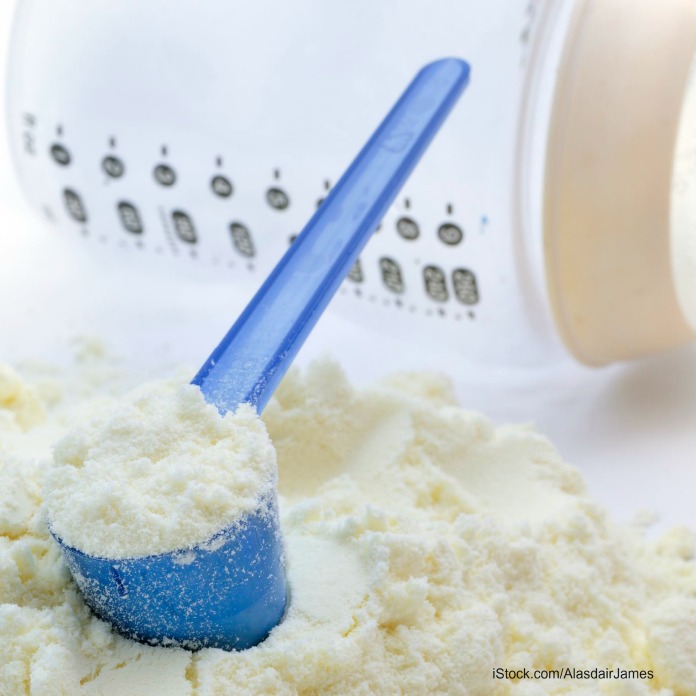The USDA offers tips to keep infants safe while powdered infant formula shortages are ongoing. The shortage is caused by pandemic supply chain issues and the closure of Abbott Nutrition’s Sturgis, Michigan plant for environmental Cronobacter contamination. The contamination was discovered during an FDA inspection after reports of infant illnesses.

Many parents depend on formula in the first year of a baby’s life. Some mothers cannot breastfeed, and some infants require supplemental nutrition or specialty formulas because of medical issues.
To keep infants safe, the USDA says parents should not make homemade infant formula. There are serious safety and health concerns related to homemade formula because they can be deficient in nutrients that babies need for health and growth. Some infants have developed hypocalcemia (low calcium) from these products and have required hospitalization. Other issues include contamination with bacteria that may be found in the kitchen.
Do not give your baby cow’s milk or other non-dairy milks until they are one year old, unless your pediatrician has cleared it. Sone babies older than six months can tolerate it for a short period of time. Cow’s milk has a high concentration of protein and minerals that can stress an infant’s kidneys. And cow’s milk does not have the correct amounts of iron, vitamin C, and other nutrients. That milk can cause iron-deficiency anemia in some babies.
Never water down infant formula, which can leave your child deficient in important nutrients. This practice can also cause water intoxication, which can be fatal.
Do not buy formula online that comes from outside the United States. This formula could be counterfeit, have a fake label, or contain an incorrect use-by date.
And it’s critical that you prepare and store infant formula according to the manufacturer’s instructions. Always clean, sterilized, and store infant feeding items carefully. Wash your hands before preparing formula and when handling feeding items.
And talk to your pediatrician about any problems you are having. You may be able to start introducing complementary foods by six months, but they should never be introduced before the baby is four months old.




